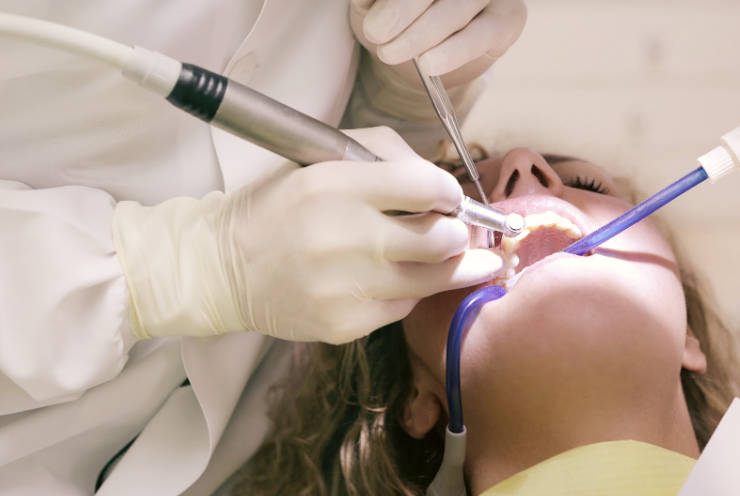Can Stress Ruin Your Teeth?

|
Stress can damage the body in numerous ways. As many of us may already know, it can damage the skin, hair and various other organs around the body. But can it also affect our teeth? It may not be as obvious a danger as sugar or smoking, but yes – stress can cause havoc to oral health. Below are just some of the ways in which stress can be a danger to our mouths. |
Stress can make oral infections worse
Stress can’t cause infections, but it can increase susceptibility to infections around the body. It can also cause any underlying infections that you may be fighting to get worse.
This is particularly the case when suffering from chronic stress. An abundance of stress hormones can suppress the immune system. This stops us from being able to produce antibodies and slows down our ability to heal wounds, allowing infections to get worse.
If you’ve got an oral infection, stress could make this infection much worse. A mild gum infection could have the potential to turn into something more serious – an infection that could have required only antibiotics could evolve into a painful infection that requires root canal or even tooth extraction.
If you’re under a lot of stress and you’ve noticed that you’ve got an oral infection, it could be worth booking a check-up with a dentist as soon as possible. Acting quickly can stop the spread of the infection and it will likely save you money in the long run by reducing the need for more costly dental treatment at a later date.
Meanwhile, finding ways to reduce stress can help to prevent infections flaring up, as well as helping you to beat ongoing infections.

|
Stress can cause canker sores Canker sores are painful legions that can develop on the soft tissue inside the mouth. They can be caused by food sensitivities and by accidental injuries to the mouth (such as biting the inside of one’s cheek), but can also be commonly caused by stress. |
They’re often mistaken for cold sores, but are very different. Cold sores are a viral infection commonly found on the outside of the lips and are contagious (although like canker sores, stress can cause them to flare up). Canker sores are technically scars and are not caused by an infection – however they can become infected.
While most canker sores heal on their own, some can persist. Chronic stress can often stop canker sores from healing and can increase the risk of infection. In these cases, you’ll likely want to see a doctor or a dentist to treat the canker sore.
To stop canker sores appearing, take care what you put in your mouth to avoid injury. If you’ve got a sharp tooth or braces and you find that this is irritating your mouth and leading to canker sores, you may want to see a dentist. Finding ways to reduce stress can also stop canker sores from appearing and will help any existing sores to heal.
Teeth grinding can be a symptom of stress
Teeth grinding (also known as bruxism) is often caused by chronic stress and anxiety. It happens most commonly when people are asleep. Often, people don’t know that they are grinding their teeth unless told by a partner.
Teeth grinding can sometimes have no effects other than being noisy and unpleasant for those around. However, for a lot of people, it can lead to jaw pain and headaches. It can also cause people’s teeth to become worn down and chipped in some cases, making them sensitive and painful. This is the result of enamel scraping against enamel.
If you grind your teeth, a doctor or dentist may recommend wearing a mouthguard at night. These can help to provide a protective layer between your teeth and can be custom built to fit your mouth so that they feel more comfortable. Of course, taking steps to reduce stress could also help you to beat teeth grinding.

|
Stress encourages smoking, drinking and unhealthy comfort eating A major way in which stress can damage the teeth is by encouraging bad habits that harm the mouth. We often turn to such habits as a form of stress relief – they’re negative forms of self-medicating against stress. |
Smoking is an example of such a bad habit. Many people smoke more frequently when they’re stressed – this is because nicotine creates an immediate sense of relaxation. Smoking can negatively affect our oral health in many ways including causing yellowing of teeth, discoloration of gums and bad breath. It can also cause more serious damage by increasing the risk of oral infections and oral cancer.
Drinking alcohol is a form of stress relief for many of us. Some of us are dependent on a glass of wine or a beer in the evening each day to unwind. Such alcoholic drinks unfortunately aren’t good for our teeth. This isn’t so much due to the sugar in alcoholic drinks – in fact, it’s mainly due to alcohol’s dehydrating properties, which can result in a dry mouth. This lack of saliva in the mouth causes bacteria to thrive. Meanwhile, certain drinks like red wine stain the teeth.
Comfort eating is another unhealthy form of stress relief that many of us turn to. Such foods can have an impact not only on our waistline, but also on our teeth. This is most obviously the case with sugary snacks like candy, chocolate and cookies. Sugar releases endorphins around the body to combat stress, but also helps bacteria to breed in the mouth, leading to decay.
There are ways to make these forms of stress relief less damaging to the teeth. Drinking lots of water can help to keep teeth clean (in the case of drinking alcohol, drinking glasses of water between glasses of wine can prevent a dry mouth). There are also alternatives such as nicotine patches, alcohol-free drinks and low-sugar snacks.
Of course, there are also other much healthier stress busters than smoking, drinking and comfort eating. These include exercise, meditation, taking a hot bath, laughter and listening to music (none of these forms of stress relief will damage your teeth).
Saving your mouth from stress
If you want to look after your teeth and mouth, it could be important to find ways of reducing stress in your life. You can’t always eliminate the source of stress – but there are many healthy ways to find relief.
Bad teeth itself can be a source of stress. The impact it can have on your physical appearance can lead to anxiety, while pain caused by toothaches is likely to be a stress trigger. All in all, you don’t want to neglect your teeth.